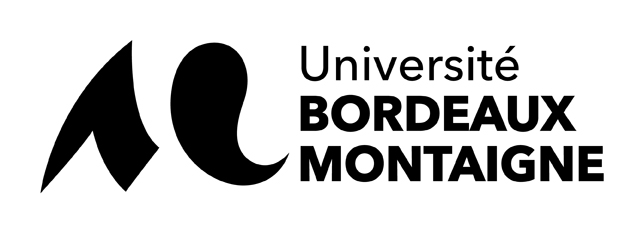Information for (Prospective) Students
1. Course Language:
All courses of the EIMAS (except language courses) are conducted in English.
2. Duration:
One EIMAS cycle starts on 1st September and ends two years later on 31st August. During the entire study period, the students will be registered in each of the three consortium universities (University of Porto, University of Bayreuth and Bordeaux Montaigne University).
3. Mandatory Mobility:
The EIMAS mobility path is determined for the first three semesters:
- 1st semester: University of Porto
- 2nd semester: University of Bayreuth
- 3rd semester: Bordeaux Montaigne University
The 4th semester will be conducted at one of the consortium universities the student chooses. This will be stated in the Individual Student and Learning Agreement (ISLA).
4. Milestones
All milestones have to be indicated in the ISLA, which must be submitted until 15th December of the third semester.
The ISLA states the working title of the fieldwork and (preliminary) title of the master thesis and has to be signed by the student and their supervisor before submitting it to the EIMAS Coordinator.
In case of late submission, the payment of the scholarship might be suspended.
a) Introduction weeks
At the beginning of the 1st, 2nd and 3rd semester, an introduction week takes place at each consortium university. The participation in each introduction week is mandatory.
b) EIMAS Winter School
The participation in the EIMAS Winter Schools are mandatory.
All students have to participate in the Winter Schools in their 1st and 3rd semester and are expected to actively contribute to the organisation of the EIMAS Winter School in their 3rd semester.
c) Field research or internship
The beginning of the 4th semester is dedicated to a fieldwork. This can be either a field research or another well-prepared and structured internship of at least eight weeks. The fieldwork must contribute to the student’s master thesis.
Each student chooses one supervisor for their fieldwork, who will also be their supervisor for the final master thesis. The supervisor needs to affirm their support by signing the ISLA, which includes the working title of the fieldwork and the (preliminary) title of the master thesis. The fieldwork has to be consistent with the ISLA.
d) Thesis writing, submission and evaluation
The master thesis will be written in the 4th semester. The student will get support in the supervision seminar as well as in direct communication with their supervisor and two (external) mentors they can choose in consultation with their supervisor. The names of the mentors have to be indicated in the ISLA.
The thesis has to be submitted to the EIMAS Coordinator latest by 30th June of the same year.
The thesis will be evaluated by the supervisor and one other examiner, who is a lecturer at UBM, UBT, UP or at the research centre Les Afriques dans le monde (Bordeaux).
e) Thesis defence
The thesis defence will take place at the university where the student is enrolled in their 4th semester by end of August of the same year. It will be conducted and evaluated by the two examiners of the master thesis. At the end of the defence, the student will be informed about the result of the thesis as well as the defence.
5. Performance Monitoring and Evaluation:
a) Performance monitoring
Each semester the student needs to obtain 30 ECTS.
Which of the optional modules the student has chosen needs to be indicated in the ISLA.
The national language courses (module 8) are highly recommended in the 1st, 2nd and 3rd semester. Those activities, although not accredited, and the voluntary participation in other courses in the EIMAS will be incorporated in the Diploma Supplement.
Attendance of 75% of the lectures, presentation sessions and seminars is compulsory.
In order to complete a module, the student needs to take an exam, either in a written form (test or paper) or an oral examination determined by the lecturer at the beginning of the course.
If the student does not successfully complete a module due to failure, they have the possibility to repeat the exam once on a fixed date in the same semester. If the student fails the Master thesis, they have to repeat the module by registering again in the same university without getting any further financial support.
In case of disease and missing more than 25% of a module, the repetition of a module or other requirements need to be decided on individual basis.
b) Evaluation
In each semester and for each module, the student will be evaluated according to the national grading system.
The overall results of each semester will be transferred into the EIMAS grading system by first converting them into a percentage and then into a letter scale ranging from A(+) to D(-) and F. This process enables the joint and unambiguous determination of a final grade.
Since the French national grading system does not allow a bijection for 16, 14 and 12, these results will be assigned to the EIMAS grades A-, B- and C-. Plus and minus will only be regarded in the exams but not in the overall grades. The lecturer of the respective module decides for the Portuguese 10 and the German 4,0 and 1,0 whether it is D or D- and A+ or A by taking the student’s oral participation in the course into account.
6. Funding and Finances:
The type of funding for the whole study period has to be indicated in the ISLA.
Regulations for EMJMD scholarship holders are indicated here and on the websites of Erasmus+ (see below).
Each EMJMD scholarship holder needs to have a European bank account. The bank account where financial support should be paid has to be indicated in the form “Bank Account Information”.
Other scholarship holders as well as self-financed students will be held responsible for financing their whole study period including all obligatory activities in order to guarantee the finalisation of their master studies.
Information on the tuition fees at the three consortium universities can be found here.
a) Type of funding
EMJMD scholarship holders will receive financial support according to the Erasmus+ guidelines. They do not have to pay any kind of participation or administrative costs for obligatory activities within the EIMAS study plan.
b) Monthly allowances
EMJMD student scholarship holders receive 1,000.00 € per month for their subsistence costs.
But:
- The contribution to the subsistence costs will not be given to EMJMD student scholarship holders for periods (≥ four consecutive weeks) they spend in their country of residence.
- The contribution to the subsistence costs will not be given to EMJMD student scholarship holders from a Partner Country for periods exceeding three months spent in any Partner Country.
c) General travel costs
The amount of the contribution to the travel costs depends on the EMJMD student scholarship holder’s place of residence.
- Programme Country Students: 1,000.00 € per year
- Partner Country Students resident in a country located less than 4,000 km away from Bayreuth: 2,000.00 € per year
- Partner Country Students resident in a country located more than 4,000 km away from Bayreuth: 3,000.00 € per year
d) Installation costs
EMJMD student scholarship holders from a Partner Country receive 1,000.00 € for their installation costs.
e) Travel costs for fieldwork
Each EMJMD scholarship holder receives up to 1,000.00 € for travel costs (public transportation, economy class) in order to carry out the mandatory field research or internship in the 4th semester.
For this purpose, a travel application has to be submitted or sent via email to the EIMAS Coordinator at least eight weeks before the planned date of departure.
The travel application has to include:
- Cover letter (including the exact dates and a short explanation of the purpose for the travel)
- Cost budget
- Exact itinerary
- Confirmation letter of the host institution (if applicable)
- Three flight quotations (if applicable)
- Proof for requested costs (if applicable; e.g. participation or entrance fees)
- Request for advance payment (if applicable)
Travels can only be brought to account and reimbursed within three months after return.
Overpaid advance payments have to be refunded. No reimbursement without receipt.
>> more information on EMJMD student scholarships
7. Health Insurance:
According to the Erasmus+ Minimum Requirements for the Health and Accident Insurance Coverage of EMJMD Students, the EIMAS consortium has decided to offer the students an insurance package for the entire programme, which is valid at all three study destinations (Porto, Bayreuth, Bordeaux) as well as an additional travel insurance for destinations beyond the EU programme countries where students will go for internships, fieldwork etc.
Health insurance costs will be paid only for EMJMD scholarship holders, other students are obliged to take out an insurance on their own. Advice is offered by the EIMAS Coordinator.
8. EIMAS Services:
The EIMAS consortium is closely cooperating with the International Offices and the Gender and Diversity Representatives of each consortium university. The EIMASCC is the principal point of contact for all EIMAS members and can connect them with the responsible institutions and persons in all matters like
- visa and housing support
- administrative support
- academic support.
9. Code of Conduct:
The EIMAS consortium follows the European Code of Conduct for Research Integrity of ALLEA (All European Academies) to conduct good research practices by following the principles:
- Reliability in ensuring the quality of research, reflected in the design, the methodology, the analysis and the use of resources.
- Honesty in developing, undertaking, reviewing, reporting and communicating research in a transparent, fair, full and unbiased way.
- Respect for colleagues, research participants, society, ecosystems, cultural heritage and the environment.
- Accountability for the research from idea to publication, for its management and organisation, for training, supervision and mentoring, and for its wider impacts.
10. Leave of Absence and Interruption of Studies:
A leave of absence and an interruption of studies as well as an earlier quitting of the university in the 4th semester before having obtained all required credits are not envisaged and only possible for solid reasons. They need to be decided in individual cases.
11. Appeal Procedure:
Any kind of complaints should be referred to the EIMAS Coordinator. If a direct consultation is not possible, it is the task of the Student Representatives to collect complaints and pass them on. In cases of sexual harassment or xenophobic and racist attitudes the EIMAS Gender and Diversity Representatives should be informed immediately.
If you want to apply for an Erasmus+ scholarship, please also visit the website of the Education, Audiovisual and Culture Executive Agency (EACEA) for more information.
Furthermore, please carefully read the Erasmus+ Programme Guide to be aware of the eligibility criteria.




